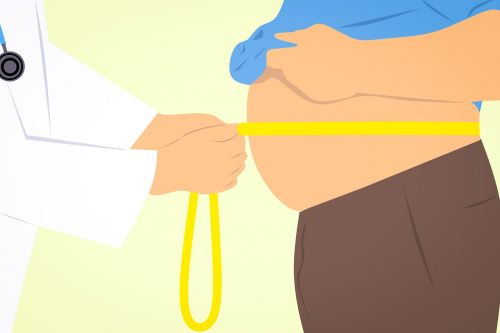Gut Hormones and the Effects of Weight Loss Surgery in Huntsville, AL – A Follow-Up
Gut Hormones and the Effects of Weight Loss Surgery in Huntsville, AL – A Follow-Up
Before this point, the bariatric community made an observation in regards to how our hormones react to bariatric surgery. They observed that when patients underwent bariatric surgery, their bodies would handle food differently. Type 2 diabetes, for the most part, would reverse itself. This is because, after weight loss surgery, there is a higher presence of GLP-1 and Peptide-YY, hormones that control and balance out blood sugar.
In an interesting twist of events, the Imperial College London has released a study regarding type 2 diabetes, weight loss surgery, and hormones. They essentially came up with a cocktail of the same hormones post weight loss surgery. How did this measure up against weight loss surgery? Is there something to hormone therapy and weight loss? What does it mean for the world of bariatrics and weight loss surgery in Huntsville, AL?
A Quick Recap
If you recall the last post that we have made earlier regarding the subject, we mentioned:
- Our guts are an ecosystem of bacteria and cells.
- Some of the bacteria are good for the body, some of them are bad, and some of them make no difference.
- When we eat good food and exercise we help good bacteria.
- Our guts naturally produce hormones for handling blood sugar.
- When we eat bad food and do nothing we help bad bacteria.
- Fat cells build in and around our guts if we enable bad bacteria.
The presence of too many fat cells and bad bacteria messes with the delicate balance in the gut thanks to its mass and hormonal byproducts that literally increases resistance to insulin and inflammation. So, their removal would naturally make it easier for the body to reset itself. It also decreases its resistance to insulin as well as possible inflammation.
What happens if you did not undergo the weight loss surgery? What if you, instead, just change the hormonal content in your body to match the results of a post-bariatric state?
That was what the research team in Imperial College London tested out.
![]()
The Hypothesis
According to eurekalert.org, “Previous research by Imperial College London suggested that one of the reasons why gastric bypass surgery works so well is because three specific hormones originating from the bowels are released in higher levels.”
The mixture of hormones that the research team dubbed GOP has 3 different hormones in the mixture. GLP-1 is a hormone that “has the ability to decrease blood sugar levels in a glucose-dependent manner by enhancing the secretion of insulin.” The second, Oxyntomodulin is a hormone found normally in the colon and is an appetite suppressant. Peptide-YY is a hormone makes people feel full while they are eating. It also slows down the movement of food in the digestive tract.
The Experiment
According to dlife.com, “Fifteen patients were randomly selected to receive the hormone treatment. 11 patients were given a saline infusion as a placebo over a four-week period. The team also recruited 21 patients who had undergone bariatric surgery. There were also, 22 patients who followed a very-low-calorie diet to compare the results of GOP. The researchers gave patients a glucose monitoring device to track their glucose levels following treatment. Patients also received dietetic advice on healthy eating and weight loss from a dietician.”
They had 4 control groups in all. One with just the hormone cocktail, one with only saline, one group with a low-calorie diet only, and a group that underwent the surgery. How did they do within a few weeks?
- Bariatric Patients- lost 10.3 kg
- Lower Calorie Diet – lost 8.3kg
- Hormone Therapy 4.4kg
- Placebo 2.5kg
The Results
The interesting thing about these results was that while the patients who had the surgery lost the most weight, the hormone solution had an advantage in terms of side effects. The cocktail also was capable of lowering blood glucose levels to near normal, a drastic comparison to the pre-diabetic and diabetic conditions that these patients came in with. It will be a long time until we know for certain if the results are going to stay consistent. There is also the need for FDA approval before it would hit the market.
However, it is hopeful news for patients suffering from both type 2 diabetes and obesity problems. It’s certainly too soon to tell if it would be a complete replacement for weight loss surgery. However, it could be another weapon in the arsenal in the war against obesity. And weight loss surgery in Huntsville, Al, or anywhere, can use all the help they can get.
